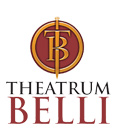Note d’actualité
Si l’année 2005 est celle de l’ONU, ce n’est pas tant en raison des festivités autour de son 60ème anniversaire, mais à cause plutôt du rapport d’un Groupe de personnalités, déposé en décembre dernier sur la demande du Secrétaire général, intitulé « Un monde plus sûr ». En effet, le sort qui sera réservé au contenu de ce document d’une centaine de pages va envoyer un message fort, que ce soit positif ou négatif, sur l'avenir de l'organisation.
Le rapport lui-même avait servi de base aux sections « sécuritaires » des propositions que Kofi Annan a présentées aux Etats-membres. Il s’agit d’un véritable chef d’œuvre d’équilibriste : il réussit à réunir sous le même toit le refus de l’unilatéralisme et du militarisme américains d’un côté, et la prise en considération des préoccupations des Etats-Unis de l’autre. Néanmoins, le risque est grand de voir un seul point, à savoir la réforme du Conseil de sécurité éclipser l’ensemble des recommandations, auxquelles la réforme controversée ne constitue pourtant pas un préalable. Aussi faudrait-il garder à l’esprit les limites structurelles de l’Organisation des Nations unies. Comme l’avait remarqué l’ancien secrétaire général Boutros Boutros-Ghali, sous sa forme actuelle, la fonction essentielle de l’ONU est de servir d’« alibi ». Mis à part ses réalisations impressionnantes dans tous les domaines qui ne touchent pas à la « haute » politique, il convient de souligner que l’Organisation reste une institution fondamentalement intergouvernementale que ses Etats membres utilisent à leur guise, en général pour faire des déclarations tonitruantes, tenter de manipuler les autres, ou masquer leurs hésitations, leurs contradictions et leur lâcheté. L’attitude des Etats-Unis constitue un cas particulièrement intéressant à observer. Cette fois-ci, on fera abstraction des incessantes chasses aux sorcières (les tentatives d’éviction des fonctionnaires internationaux pas suffisamment dociles) et des initiatives pour mettre sur pied une sorte de rival à l’ONU (coalition de pays « raisonnables », sous direction washingtonienne) – les deux aspects étant des caractéristiques constantes, qui avaient déjà marqué, entre autres, l’ère Clinton. Pour ce qui est de l’actualité, on se contentera de rappeler deux épisodes significatifs. La nomination de John Bolton – fameux pour avoir déclaré, ceci avant le 11 septembre 2001, qu’il ne ferait pas grande différence si l’immeuble à 38 étages de l’ONU à New York en perdait 10 - n'est certainement pas innocente. Mais la formulation la plus révélatrice de l’approche américaine se trouve dans leur nouvelle « Stratégie de Défense nationale ». Le document daté de mars 2005 met sur le même pied, noir sur blanc, le terrorisme et le droit international avec ses institutions. Comme il y est écrit : « Notre puissance nationale est toujours confrontée au défi posé par ceux qui suivent la stratégie des faibles, au moyen des forums internationaux, des processus juridiques et du terrorisme ».
Texte complet en hongrois.




















